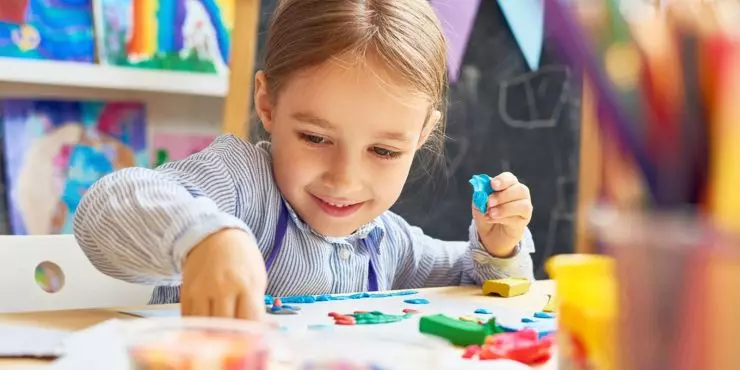
Children of all ages naturally want to play. They want to use their imaginations to create new worlds and run and skip their way through their day. While it just seems natural to play, there is hard science behind the importance of play for your child’s physical, emotional, and cognitive development. It's far more than just a way for kids to pass time; it's an essential part of their growth and well-being. In a world increasingly filled with structured activities and screen time, the importance of play cannot be overstated. Let's dive into why play is so crucial for a child's development.
The Importance of Play in Your Child's Development
A Foundation for Learning
Play is often seen as the natural language of children. It's through play that they begin to understand the world around them. The American Academy of Pediatrics (AAP) emphasizes that play promotes not just physical health but also emotional well-being, social competence, and cognitive skills. According to a report published by the AAP, play is critical in building the foundation for reading, mathematics, scientific thinking, and problem-solving skills.
Emotional and Social Development
Through play, children learn to navigate emotions, develop empathy, and build relationships. It's in these early interactions that children practice negotiation, cooperation, and conflict resolution. The act of playing with peers or caregivers strengthens social bonds and provides a safe space for children to express their feelings and understand those of others. Dr. Vivian Paley, a renowned early childhood education expert, noted that through play, children rehearse the social skills they will need throughout their lives.
Physical Health and Motor Skills
The physical benefits of play are readily observable. Active play helps children develop coordination, balance, and motor skills. It encourages healthy lifestyle habits that can combat obesity and related health issues. The Centers for Disease Control and Prevention (CDC) recommends that children engage in physical activity daily, highlighting play as an enjoyable and effective way to meet this goal.
Creativity and Imagination
Play is where imagination takes flight. In a world constructed of boxes and blankets, children become astronauts, doctors, and explorers. This kind of imaginative play fosters creativity, which is linked to problem-solving and innovation. Dr. Stuart Brown, founder of the National Institute for Play, points out that play is a seedbed for creativity, allowing children to explore, experiment, and discover.
The Role of Parents and Educators
While children are naturally inclined to play, the role of adults in facilitating and supporting play is critical. Encouraging a variety of play types, including unstructured play, outdoor play, and pretend play, ensures that children reap the full spectrum of benefits. It's also essential for parents and educators to actively engage in play at times, providing not just supervision but also interaction that enriches the play experience.

Balancing Screen Time
Balancing screen time with active play is a challenge. While technology can offer educational benefits, it should not replace physical and imaginative play. Setting limits on screen time and prioritizing active, play-based learning opportunities is crucial for healthy development. Remember, allowing your child to watch the television or ipad for hours daily will take a toll on their development and begin to set lifelong habits of living a sedentary lifestyle. Get them off the screens and outside for some active play instead!
We are Not Playing You
The evidence is clear: play is not just a leisure activity; it's a critical component of healthy childhood development. As parents, educators, and physicians, it's our responsibility to ensure that children have ample opportunities to engage in play, especially with their peers and siblings. By doing so, we're not just entertaining our children; we're laying the groundwork for their future success and well-being. Let's commit to giving play the importance it deserves in the lives of our children.
Remember, the work of childhood is play. Let's make sure we're giving our kids the best tools for the job.